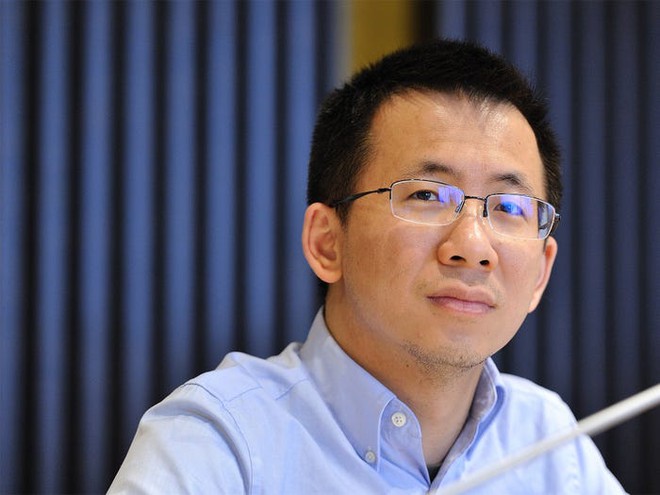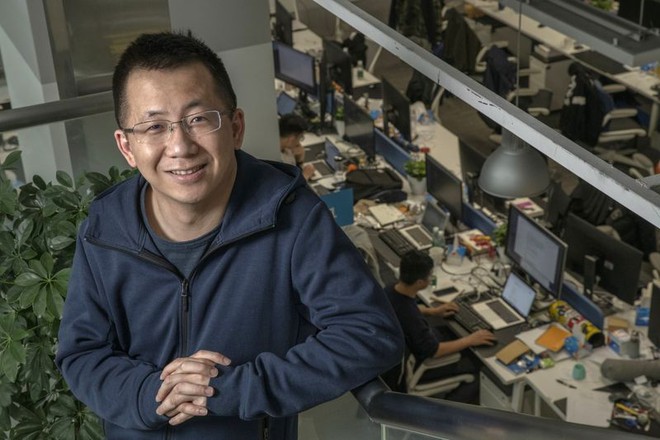Bytedance founder, owner of TikTok, just decided to ‘retreat’
- Tram Ho
Jack Ma disappeared from the limelight after Ant Group’s planned IPO was scrapped under pressure from Chinese authorities – and he’s not the only tech executive in the country to do so. last year.
Bloomberg reported on Wednesday that the founder of Bytedance, the parent company of the TikTok app, Zhang Yiming, has resigned from the company’s board. Earlier in May, Yiming announced that he would step down from his role as CEO at the company.
But the 38-year-old chairman will still be involved in formulating the Chinese tech company’s long-term strategy, according to an unnamed source.
Representatives for ByteDance and TikTok declined to comment.

Bytedance founder Zhang Yiming.
Yiming’s move to “stay behind” marks another famous Chinese technology CEO’s continued retreat from public attention as the country’s government repeatedly introduced policies to tighten employment. manage domestic tech giants. These tightening policies, combined with increasing vigilance against billionaires with extremely rich assets, have affected the perception of these powerful businessmen and made them despised in the public eye.
In the months after China interfered in Ant Group’s IPO, rumors swirled that Jack Ma had disappeared. However, in June, an Alibaba executive said that Jach Ma was simply “laying still” as his empire was subjected to intense scrutiny.
Meanwhile, many other tech executives have opted to give up altogether.
Colin Huang, the former CEO and chairman of e-commerce giant Pinduoduo, left both roles earlier this year. The co-founder of the Kuaishou platform, Su Hua, also stepped down as CEO. The founder and CEO of online retail giant JD.com also left in September, leaving the chair for another CEO to take his place.
In the past, the Internet economy was largely unregulated in China, meaning companies were able to grow freely without being regulated. At the same time, it also doesn’t have the strict rules that apply to more traditional sectors like banking. But in November 2020, China introduced new rules of anti-competitive behavior, allowing for greater regulation of the tech giants. Earlier this year, Alibaba was hit with a $2.8 billion-equivalent fine due to concerns that it was abusing its dominant market position.
As China focused on the internet economy, Bytedance tried to move away from online services and into enterprise software development. Most recently, it said it was reorganizing the company into six different business units, including: TikTok, Douyin (Chinese version of TikTok), educational software, office software, infrastructure platform cloud and game development.

Zhang Yiming created ByteDance nearly a decade ago, in a residential area in the city of Beijing.
ByteDance became the first Chinese internet company to achieve global success with TikTok, a short video platform that has more than 1 billion monthly users worldwide. It was valued at $140 billion in a 2020 funding round and then climbed to $500 billion before falling from this peak.
However, that success, along with domestic successes with the Douyin app and news aggregator Toutiao, has made the Beijing-based company a target both at home and in the US, where it nearly had to sell the TikTok app under the Trump administration.
In China, ByteDance has drawn criticism from regulators, who are seeking to rein in the once-free internet industry. Although ByteDance is not the target of any formal investigation, the company is still among more than two dozen companies that have been ordered by China’s Ministry of Technology to carry out internal checks and root out operations. illegal online earlier this year.
Regulators have also slowed the approval of new video games to enforce stricter criteria for content and child protection. This also threatens ByteDance’s emerging gaming business. With its education app development division, the company has been forced to lay off at least hundreds of employees this year, after the Beijing authorities introduced the harshest ever restrictions on children. with after-school tutoring.
Recently, the Chinese government introduced new data privacy regulations, including requiring that companies with more than 1 million users need explicit government approval before making it public. Other countries. And now, companies like ByteDance need to reassure regulators that their user data won’t be compromised.
Refer to BI, Bloomberg
Source : Genk
